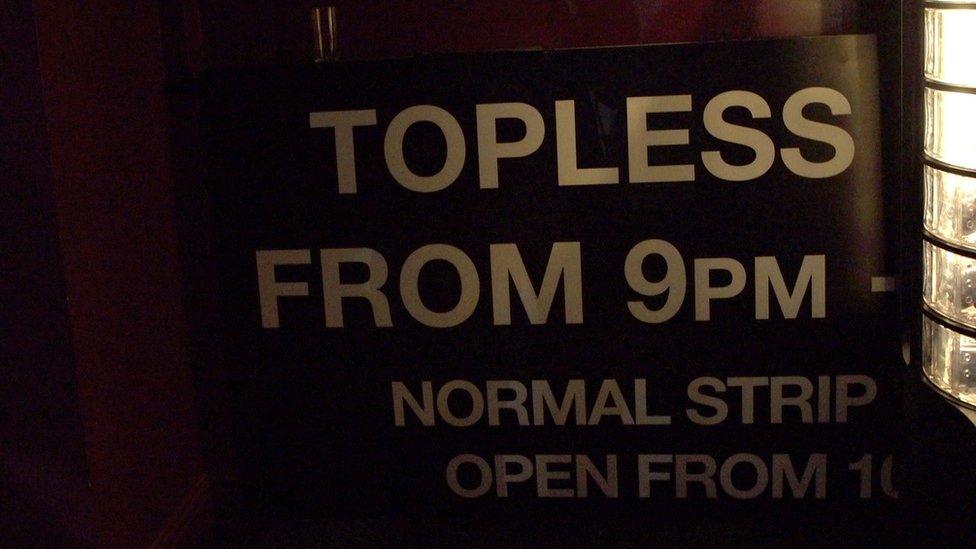Modern slavery cases 'rise by over a third'
- Published

Potential victims of trafficking are reported to the National Referral Mechanism (NRM)
The number of potential trafficking and modern slavery victims reported to the authorities has risen by 36% in a year, National Crime Agency figures show.
Last year, 6,993 potential victims were referred into the government system, up from 5,142 in 2017 and 3,804 in 2016.
But the Human Trafficking Foundation told the Victoria Derbyshire Programme the system is failing to provide long-term support for victims.
The Home Office says its work ensures thousands of people receive support.
Potential victims are reported to the National Referral Mechanism (NRM), which is designed to identify and support victims, while making the prosecution of traffickers easier.
Once a victim has signed the form and entered the NRM, the Home Office and the UK Human Trafficking Centre must decide whether to class a person a victim of slavery within 45 days. Once a victim is in the system they can access legal advice, accommodation, protection and support.
Tamara Barnett from the Human Trafficking Foundation said a lot of survivors are sent home, or disappear 'into the ether, back into destitution'.
"We've heard from police officers who have referred people into the NRM repeatedly because each time they leave the NRM they're becoming destitute, being re-trafficked, and the police are identifying them again.
"The NRM just isn't working on that long-term scale."
Scale of the problem
Meanwhile, the Local Government Association has released figures from the National Crime Agency (NCA), showing council referrals of suspected victims have risen from 131 in 2013 to 1,306 in 2018.
It says this has increased by 66% in the last year alone, from 789 in 2017 - putting councils under financial pressure.
And it is thought the figures are not reflective of the full scale of the problem in the UK.
Helen Gordos, a tactical adviser at the NCA, said: "In 2013 an estimate was produced by the government that there were approximately 10-13,000 people held in some sort of slavery conditions."
A Home Office spokesman said the government is leading the fight with the Modern Slavery Act and Modern Slavery Strategy.
"Every year the National Referral Mechanism ensures thousands of victims and survivors of modern slavery receive specialist and tailored support, including accommodation, and mental and physical healthcare," he said.
"We are reforming the National Referral Mechanism to ensure quicker, more effective decision-making, and have more than doubled the number of caseworkers to reduce the number of people waiting for a decision."
Follow the ┤¾¤¾┤½├¢'s Victoria Derbyshire programme on and - and see more of our stories here.
- Published22 January 2019
- Published30 July 2018